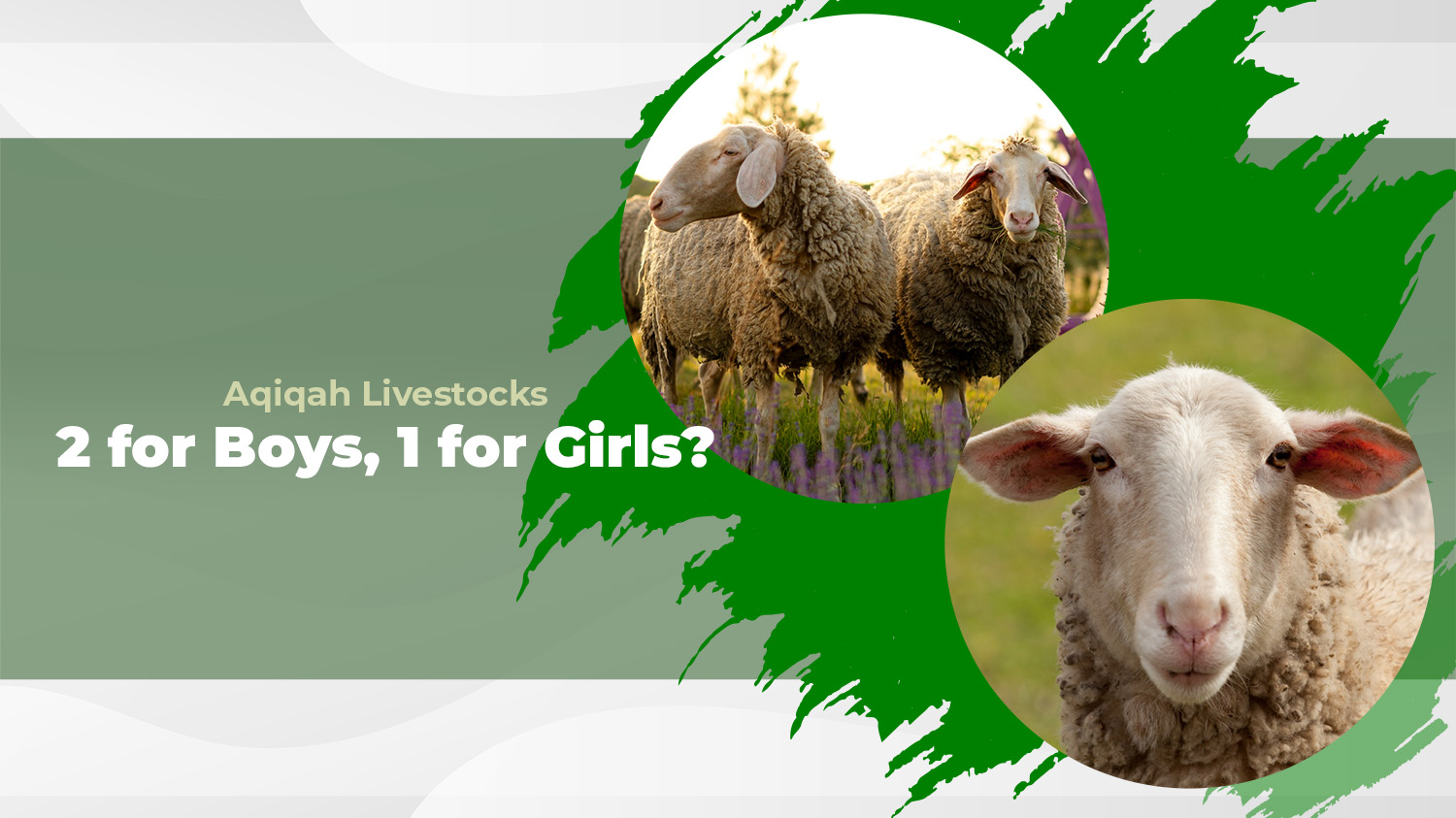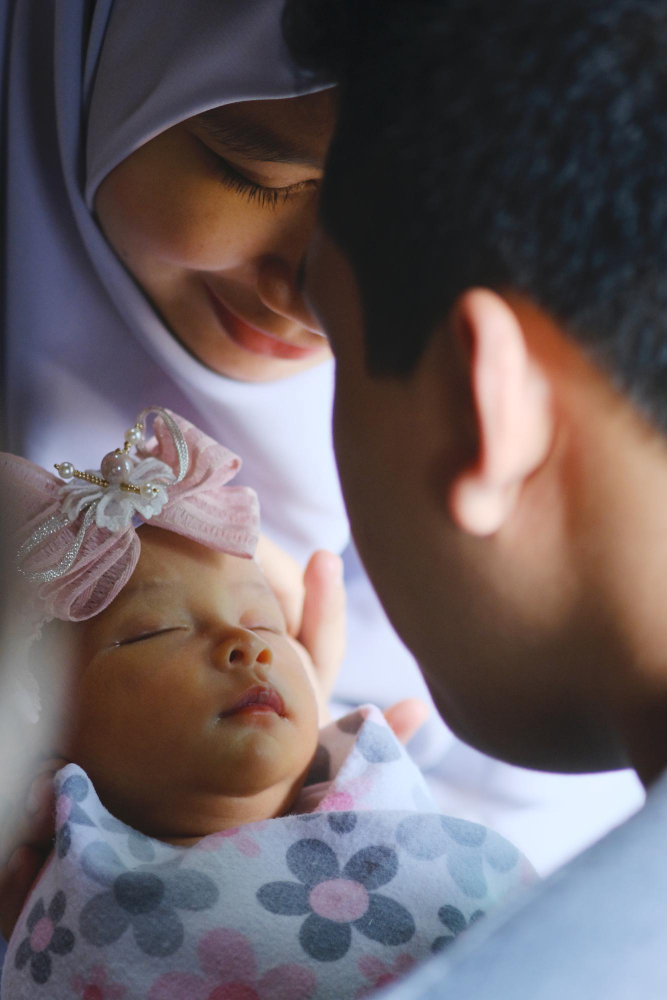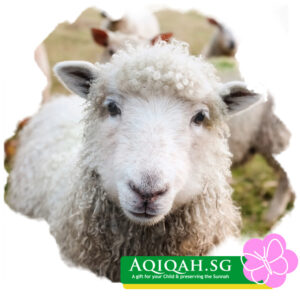
Aqiqah: Why 2 Sheeps for Boys But Only 1 for Girls?
One aspect of aqiqah that often raises questions from our customers is the difference in the number of animals sacrificed: two for boys and one for girls. Why is this distinction made, and what does it signify? Let’s delve into its origins, wisdom, and relevance in today’s context.
The Basis of Aqiqah in Islamic Tradition
The practice of aqiqah is deeply rooted in the Sunnah (teachings and practices of the Prophet Muhammad, SAW). A hadith reported by the companions of the Prophet states:
“Two resembling sheep are to be sacrificed for a boy and one for a girl.”
Sunan Abu Daud, Tirmizi and Ibn Majah
Furthermore, the sacrifice of livestock for boys should be done together and not separately where one of it is delayed, based on the commentary of Sahih Bukhari in Fath al-Bari.
This guidance forms the basis of the differentiation in the number of animals, which continues to be observed by Muslims today. The reason behind this ruling is not explicitly stated in any text. However, we can reflect on its wisdom.
Boys are not more “special” than girls.
The distinction in the number of animals is not meant to signify greater value or importance for boys over girls. In fact, the Allah (SWT) forbid the devaluation of girls or any cultural pressure of that time that would encourage men to bury their daughters alive, and has raised this point in this revelation in the Quran:
“And they attribute to Allah daughters – exalted is He – and for them is what they desire [i.e., sons]. And when one of them is informed of [the birth of] a female, his face becomes dark, and he suppresses grief. He hides himself from the people because of the ill of which he has been informed. Should he keep it in humiliation or bury it in the ground? Unquestionably, evil is what they decide.”
Surah An-Nahl, Chapter 16, Verse 57-59
Without debate, Islam emphasizes the equality of all human beings in the eyes of Allah (SWT), regardless of gender. Instead, this practice can be understood in the following ways:
1. Acknowledgment of Traditional Roles
In early Islamic societies, boys were often expected to take on greater responsibilities in providing for and protecting their families. The additional sacrifice for boys may symbolize the acknowledgment of these societal roles, reflecting gratitude for the blessings and responsibilities associated with raising sons.
2. Dismantling Prejudice
Perhaps the Prophet (SAW) understood that some men, being newly converted to Islam, were still under pre-Islamic cultural pressure and therefore he lessened the recommended amount of charity, to make the decision to keep the girl easier for them. As such, it was a means of further dismantling this cultural prejudice and NOT reinforcing it.
3. Practical/Financial Considerations
Another possible explanation is rooted in practicality, since girls were not seen as capable in supporting the breadwinning tradition, and thus the financial prosperity. By requiring only one animal for a girl’s aqiqah, Islamic tradition accommodates families with limited financial means. This distinction reflects Islam’s emphasis on ease and compassion, ensuring that all families can participate in the joy of aqiqah.
Flexibility in the Tradition
It’s important to note that the “two for boys but one for girls” rationale is a recommendation, not an obligation. Scholars agree that if a family cannot afford two animals for a boy, one is sufficient. Similarly, parents may choose to sacrifice more than one animal for a girl if they wish. The essence of aqiqah lies in gratitude, charity, and community, not in strict adherence to numbers:
“So, when I command you to do anything, do it as much as it lies in your power and when I forbid you to do anything, then abandon it.”
Sahih al-Bukhari and Sahih Muslim
The Relevance of Aqiqah in Modern Times
In today’s world, the roles of men and women have evolved significantly, and the responsibilities within families are often shared. While the traditional basis for the distinction in aqiqah numbers may not fully align with modern societal norms, the underlying values remain timeless:
- Gratitude to Allah: Aqiqah is a moment to thank Allah for the gift of a child and to recognize the immense responsibility of raising them.
- Charity and Community: The meat from the aqiqah is distributed to the poor and shared with loved ones, fostering compassion and solidarity.
- Celebration of Parenthood: Whether the child is a boy or a girl, aqiqah is a joyous occasion to mark the arrival of a new family member.
Aqiqah.sg: Making Aqiqah Meaningful and Accessible
At Aqiqah.sg, we understand the significance of this cherished tradition and strive to make it seamless and meaningful for Muslim families. Whether you are arranging aqiqah for a boy or a girl, our services are tailored to meet your needs, ensuring that the sacrifices are carried out in accordance with Islamic principles.
We also emphasize the charitable aspect of aqiqah, ensuring that the meat is distributed to those in need, allowing your celebration to bring blessings to others.
No matter the number of animals, the arrival of a child—whether a son or daughter—is a profound blessing from Allah (SWT). Aqiqah.sg is here to help you honor this blessing in the most meaningful way.
Interested in arranging aqiqah for your newborn? Let us help you make it a memorable and impactful event. Visit us at Aqiqah.sg to learn more!
Article-Related Products/Services


Questions?
Drop us a WhatsApp and we'll be glad to assist!
Mondays to Fridays 9.30am to 5.30pm
Closed on Sat, Sun, PH
Or contact us via webform
Sales Office
62 Ubi Rd 1,
#05-18 Oxley Bizhub 2
Singapore 408734
Operational Hours:
(Mon - Fri) 9.30 am to 5.30 pm
Closed:
Sat, Sun and PH
We Accept
 |
/ Bank Transfer






